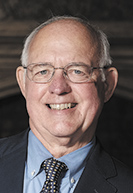Subscriber Benefit
As a subscriber you can listen to articles at work, in the car, or while you work out. Subscribe Now
By J. Richard Kiefer
When the coronavirus hit the United States in March 2020, businesses across the country were immediately impacted, with small businesses taking the hardest hit. Many shut down, laid off employees and stressed over unpaid bills. In response, Congress passed the Coronavirus Aid, Relief, and Economic Security Act (CARES Act), creating the Paycheck Protection Program (PPP), for which Congress ultimately appropriated $806 billion. To get funds in the hands of small businesses that were struggling to survive in the early months of the COVID pandemic, Congress suspended routine Small Business Administration loan processing procedures and allowed banks to rely on representations made by applicants about the size of their businesses, their payroll costs and related eligibility criteria. The program succeeded in helping thousands of businesses survive by getting money into their hands quickly, but it also created an opportunity for both fraud and honest mistakes in the loan application process.
The Congressional Select Subcommittee on the Coronavirus Crisis has estimated that there is “nearly $84 billion in potential fraud.” The SBA inspector general for pandemic recovery, Brian Miller, issued a report focusing on just one area of fraud or errors: “We determined SBA did not always have sufficient controls in place to detect and prevent duplicate PPP loans. As a result, lenders made more than one PPP loan disbursement to 4,260 borrowers with the same tax identification number and borrowers with the same business name and address. These disbursements totaled about $692 million for PPP loans approved from April 3 through August 9, 2020.”
Although the total amount of fraud is not yet determined, the Department of Justice has filed hundreds of federal criminal prosecutions throughout the United States against individuals who are alleged to have fraudulently obtained PPP loans. Nearly all those cases involve what could be characterized as “low-hanging fruit,” or defendants who submitted false documents to obtain loans, then spent PPP loan proceeds on luxury vehicles, expensive jewelry, vacations and other personal expenditures, none of which were “approved” expenses under the CARES Act.
As the DOJ expands its investigations into PPP loan fraud, even honest and well-intentioned borrowers could become the target of law enforcement scrutiny. Much has been written about inconsistencies in SBA regulations and guidance to banks and borrowers, called Frequently Asked Questions or FAQs. For example, borrowers often had difficulty in determining whether they met the CARES Act’s “loan necessity” requirement, which required borrowers to certify “that the uncertainty of current economic conditions makes necessary the loan request to support the ongoing operations of the eligible recipient.” In FAQ #31 issued April 23, 2020, the SBA asserted that, to meet this requirement, borrowers had to take into account “their ability to access other sources of liquidity.” The SBA suggested that “it is unlikely that a public company with substantial market value and access to capital markets will be able to make the required certification in good faith … .” Shortly after the SBA issued its FAQ #31, a number of large corporations repaid their PPP loans after the SBA said that if they do so, they will not be sanctioned and the SBA will not make a criminal referral to the DOJ.
Loan necessity is not the only confusing area of the eligibility criteria. The SBA’s affiliation rules, alternative size standards, criteria for determining whether to include foreign affiliates and calculation of the number of employees, among others, also caused confusion and uncertainty even by businesses who only wanted to apply for funds to which they were entitled under the law. Now, if the SBA or DOJ determines that borrowers misinterpreted the criteria, will they become the target of a federal investigation? The head of the DOJ Fraud Section said at a national conference late last year that the DOJ is going to focus on filing civil False Claims Act (FCA) lawsuits against borrowers who the Justice Department believes obtained PPP loan funds to which they were not entitled. Under the FCA, the government must prove that a defendant acted “knowingly,” but that term is defined to include “deliberate ignorance” or “reckless disregard” of the truth or falsity of the information. Thus, borrowers who did their best to understand and interpret the CARES Act and SBA regulations could face DOJ scrutiny if the government believes the company’s interpretations were incorrect. The fraud chief indicated that the DOJ will continue to file criminal charges against those borrowers who falsified documents and who used loan proceeds for personal luxury items rather than paying employees. But for others, civil FCA lawsuits will be the DOJ’s weapon of choice.
Many borrowers have asked whether they can be prosecuted or sued under the FCA if the SBA has already audited their PPP loans and approved loan forgiveness. The answer, unfortunately, is “yes.” SBA loan forgiveness decisions are not binding on the DOJ. SBA audits have not always been thorough, and the DOJ is likely to argue that the SBA failed to discover all relevant facts.
If a borrower receives notice of a DOJ investigation, whether civil or criminal, it should immediately retain counsel experienced in defending such cases. Even if the investigation begins as a civil FCA investigation, it could lead to criminal prosecution if the government discovers evidence that demonstrates an intentional or willful scheme to defraud the SBA. Those borrowers who have been sentenced thus far for PPP loan fraud have, almost without exception, ended up in prison. The DOJ has pledged to vigorously pursue PPP loan fraud cases and is expected to file many new cases this year.•
• J. Richard Kiefer chairs the Dentons Bingham Greenebaum CARES Act SBA Audit Defense Team and also co-chairs the national White Collar and Government Investigations Practice Group for Dentons. Opinions expressed are those of the author.
Please enable JavaScript to view this content.
